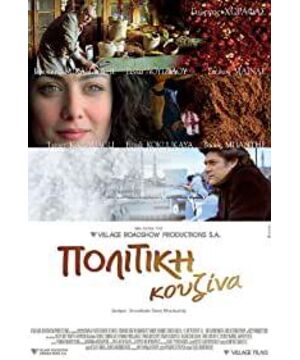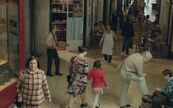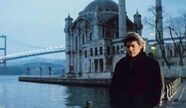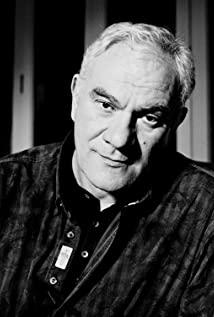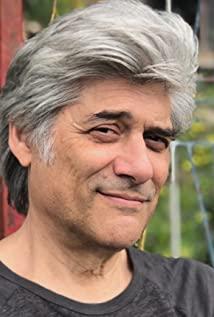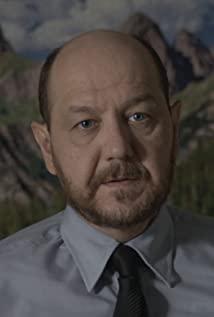The same ouzo is called ouzo in Greece and raki in Turkey, and
they all have contemptuous names for each other. Because these two countries have too many tangled histories.
Turkey ruled Greece for 400 years, and there were repressions and massacres; there was also a history of absorbing and training them to serve as officials in the dynasty, up to the prime minister, because Muslims cannot be enslaved, and foreigners can act as their "professional managers". In the era of the rise and power of the Ottoman Empire, the inclusiveness of Muslim culture was most manifested, and a large number of Greeks and Jews were active in the country's highest scientific research institutions. So, Mustapha says to Vanis in the movie: We have been learning from the Greeks, in astronomy.
More than just astronomy? Ancient Greece laid the foundation of the entire Western European civilization - cultural and political, but as a state machine, Greece has always been weak. From the decline of the Roman period to the modern times full of blood and tears. But Greek-speaking people have always had a cultural advantage over their Muslim neighbors.
This superiority failed to protect his people from slaughter and expulsion when the Ottoman Empire was in decline, showing its weakness and tyranny.
A large number of population exchanges began when Ataturk, the founding father of Turkey, established the republic, but extreme nationalism did not bring benefits to Turkey. Most of the Muslims who returned from the population exchange were uneducated farmers. The expelled Greeks were mostly educated people. Not to mention the Eastland issue.
In 1961, the train station bid farewell to a scene, and the statue that flashed by was the father of the country and his old man.
This film has been telling the major changes experienced by the Greeks in a light-hearted way. Although the topic is heavy, the plot is witty and interesting. The best part is where the story comes in - the spice. Istanbul has prospered since ancient times as an important port for the exchange of goods from east to west. And food, people take food as the sky, it also represents the joys, sorrows, joys, love, hatred and hatred of ordinary people. No matter the vicissitudes of life, it is the most important thing for a family to sit together and have a happy reunion dinner.
Food is not just food. Vasily shared a galaxy map with spices, and he was keenly aware of the sudden change of political situation from the purchase order of a diplomat's family dinner. He was a philosopher with great wisdom. Grandpa said: What people are interested in is what is invisible in the starry sky. This invisible thing is the love that transcends the country and the nation.
Vanness hates people who wear uniforms the most, because uniforms symbolize power, a symbol of the state machine, and its mistakes always bring disaster to the people. In the Greek movie "Chariton's Choir", there is a mockery of the military regime, which shows that the Greek people did not like that era of authoritarianism. So he would mess up his uncle's engagement party because he didn't like women from a military background whose boiled eggs would burn.
But it would be wrong again to conclude that "military men hate it". Otherwise, Mustafa in the story would not be handsome and affectionate, but this affection was covered up under dogmatic rules. Just like a type of person is just an abstract concept, and a person is the way to deal with it, ethnic hatred is an abstract concept, and most of the time it is a weapon of the state machine. When you face a real person, he will treat you friendly and friendly. How can you respond with hatred when you smile?
The setting of the movie is very interesting, it has not clearly told us about the ancestry of Vanness's maternal line. Maybe they were all Greeks, because including grandfather Basil, they were all Orthodox Christians. But in '61, why can grandpa and mother stay in Turkey? Because they are of Turkish origin? Country of Citizenship? The cultural conflict in this family often starts and ends with food. I just want to laugh when I think of what my dad said: The Byzantine Emperor's meatballs don't have cinnamon in them. (Byzantium is a Greek-speaking dynasty.)
In the opening remarks, Vanis said: Food, like stories, must be seasoned to be wonderful. Then, the love with Ban Mei is the cinnamon in the movie, sweet and astringent, sad and romantic. I like the ending very much. How can the love of two young children depend on life? Even the loss of a lifetime is heart-wrenching. The trauma of history cannot be diluted by romance.
Thinking of Pamuk's "Snow", Kars traversed Turkey to find the woman he liked in his youth, and Vanis was lonely for half of his life for Banmei. The infatuation of men in the two countries is the same. laugh. The pain caused by ethnic conflict is just as deep.
There are more interesting moments in the movie, such as Aunt Ai's Parkinson's good and bad, especially the last "cure", etc., so I won't list them one by one. In terms of pictures, the inserted adhan and the dusting of the rug are very loving in Istanbul and the black hat Orthodox priest in Athens. The galaxy at the end is even more beautiful and echoes from end to end.
It is said that this movie is the highest-grossing movie in Greece. How can a movie that is so witty, good-looking, and full of wisdom to review history and tell the joys, sorrows and joys of the common people from the most life-like perspective? How can it not be popular? Many of our directors and producers always talk about how the censorship system is, but if you don't have enough wisdom, patience and courage to put a story that truly reflects reality on the screen, just for entertainment or kneel down to sing praises, what will the film industry do? What about hope?
View more about Politiki kouzina reviews


